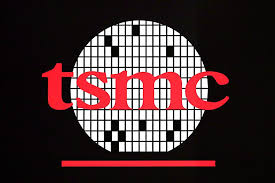
If the restrictions on the Chinese telecom giant Huawei to buy from United States companies is imposed strictly, any gap created for the Chinese company in terms of semiconductors could be quickly filled in by Taiwan Semiconductor Manufacturing Co Ltd (TSMC), the chairman of the company said on Tuesday.
Huawei’s chip division HiSilicon is among the clients of TSMC. However the biggest contract chipmaker of the world was left vulnerable to diplomatic developments between China and the United States – as the company has production bases in both the countries, after Huawei was blacklisted by the US over security concerns and trade disputes with China.
Last month, just hours before the U.S. Commerce Department outlined a proposal to amend chip export rules, the TSMC had announced its plans for construction of a production unit in the US worth an investment of $12 billion. If the new proposed legislation of the US Commerce Department is passed, it would prevent the ability of TSMC to sell its products to Huawei.
Under the proposed amendment, any company that wants to have business relations with and sell anything to Huawei, the world’s biggest supplier of telecommunications equipment and second-largest smartphone maker, will need to first acquire licences, with respect to the sales of semiconductors made abroad with US technology.
“We hope that won’t happen,” said TSMC Chairman Mark Liu when he was asked at an annual general meeting whether TSMC could fill the order gap left by HiSilicon if the amendment is adopted. “But if it does, we will replace it in a very short time,” he said in the northern Taiwanese city of Hsinchu, which is the headquarters of the Apple Inc and Qualcomm Inc supplier.
“It’s difficult for me to predict how fast it could be filled immediately,” he said.
How the rules are implemented in the US is being closely watched by the TSMC, and the company is “still studying” what they mean for the company. The possibility of applying for an exemption is not being ruled out by TSMC, he said.
About 60 per cent of TSMC’s annual revenues is generated from the US compared to about 20 per cent is accounted for by its China business, estimates analysts.
Liu said that there are other companies as well that have been impacted by the Sino-U.S. tension.
“Please be reassured. We will find a solution,” he said, answering a shareholder question on concerns about any impact on TSMC. “We will overcome the challenges one by one.”
Liu said that the investment plans of TSMC in the US are “definitely in line with” the interests of the company and it will help the company to gain the trust of its clients and enhance its talent pool.
In order to make up for the cost differences between Taiwan and the United States, talks with the US government are ongoing for possible government subsidies, TSMC said. Liu said that even though the new plant will not have any direct business relations with the military, some of the clients could be suppliers of the US military.
(Source:www.itnews.com)
Huawei’s chip division HiSilicon is among the clients of TSMC. However the biggest contract chipmaker of the world was left vulnerable to diplomatic developments between China and the United States – as the company has production bases in both the countries, after Huawei was blacklisted by the US over security concerns and trade disputes with China.
Last month, just hours before the U.S. Commerce Department outlined a proposal to amend chip export rules, the TSMC had announced its plans for construction of a production unit in the US worth an investment of $12 billion. If the new proposed legislation of the US Commerce Department is passed, it would prevent the ability of TSMC to sell its products to Huawei.
Under the proposed amendment, any company that wants to have business relations with and sell anything to Huawei, the world’s biggest supplier of telecommunications equipment and second-largest smartphone maker, will need to first acquire licences, with respect to the sales of semiconductors made abroad with US technology.
“We hope that won’t happen,” said TSMC Chairman Mark Liu when he was asked at an annual general meeting whether TSMC could fill the order gap left by HiSilicon if the amendment is adopted. “But if it does, we will replace it in a very short time,” he said in the northern Taiwanese city of Hsinchu, which is the headquarters of the Apple Inc and Qualcomm Inc supplier.
“It’s difficult for me to predict how fast it could be filled immediately,” he said.
How the rules are implemented in the US is being closely watched by the TSMC, and the company is “still studying” what they mean for the company. The possibility of applying for an exemption is not being ruled out by TSMC, he said.
About 60 per cent of TSMC’s annual revenues is generated from the US compared to about 20 per cent is accounted for by its China business, estimates analysts.
Liu said that there are other companies as well that have been impacted by the Sino-U.S. tension.
“Please be reassured. We will find a solution,” he said, answering a shareholder question on concerns about any impact on TSMC. “We will overcome the challenges one by one.”
Liu said that the investment plans of TSMC in the US are “definitely in line with” the interests of the company and it will help the company to gain the trust of its clients and enhance its talent pool.
In order to make up for the cost differences between Taiwan and the United States, talks with the US government are ongoing for possible government subsidies, TSMC said. Liu said that even though the new plant will not have any direct business relations with the military, some of the clients could be suppliers of the US military.
(Source:www.itnews.com)














